
Phase 3 induction study results show that the drug achieved a positive endoscopic response at week 12

Phase 3 induction study results show that the drug achieved a positive endoscopic response at week 12
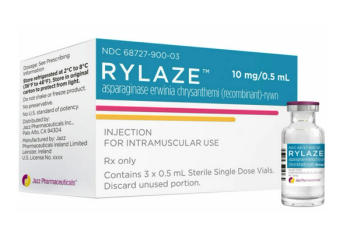
Rylaze is a component of a multi-agent chemotherapeutic regimen for the treatment of acute lymphoblastic leukemia and lymphoblastic lymphoma.

Thomas Lodise, PharmD, PhD, discussed new guidance released by the Infectious Diseases Society of America (IDSA) on the treatment of antimicrobial resistant gram-negative infections.

In the case reviewed, the pharmacy department created an interdisciplinary Biosimilar Task Force responsible for making decisions relating to the adoption of biosimilar therapies.

The findings of a study showed redistribution and standardization of prior authorization processes within health systems allowed pharmacy technicians reduce the burden on staff members from other roles.

Study subject was based around the 4 pillars of clinical academia: practice, scholarship, service, and teaching.

In the study, the investigators observed that by elevating technicians to advanced analytics roles, pharmacies could develop user-friendly data collection tools and data analytics.

The case study details the methodology employed by a large academic medical center to convert its medication history technician program’s workflow from on-site with in-person patient interviews to completely remote services.

Nakia Eldridge, PharmD, MPH, senior manager of health care quality, safety, and information at US Pharmacopeia (USP), and Lindsey Clawson, MBA, USP’s lead of COVID-19 vaccine strategy, discuss the latest updates in USP’s COVID-19 Vaccine Handling Toolkit.

FDA to evaluate luspatercept-aamt (Reblozyl) for the treatment of anemia in adults with non–transfusion dependent β-thalassemia.

Study shows that team-based medicine helps highlight the role of the pharmacist, improving outcomes.

The implementation allowed pharmacists to use online technology in anticoagulation clinics, which increased referrals and led to more accessibility, study results show.

The investigators compared blood test results from a total of 186 paramedics, some of whom received their second dose less than 4 weeks after receiving the first, whereas others received second doses after 6 to 7 weeks.

The workload in pharmacies may not be proportionate to census or patient load due to variations in case mix index.

Pharmacy leaders can be equipped to make effective decisions to support a successful work experience, regardless of work setting.

Involving students in advanced pharmacy practice experience rotations resulted in a greater overall impact.

Regular vaccine workflow re-education helps promote standard workflows and prevent vaccine errors.
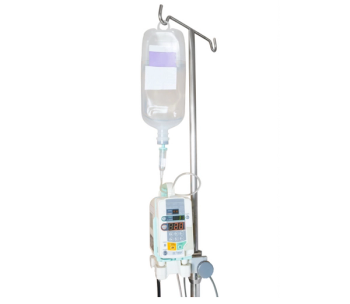
Study results show that during a 1-year period, more than 15 patient care areas underwent rapid changes.

Pharmacy leaders and organizations should continue to advocate for the expansion of responsibilities granted by the 2020 PREP Act, according to the report.

FDA approves rituximab (Rituxan) plus chemotherapy for pediatric patients with previously untreated, advanced stage, CD20-positive diffuse large B-cell lymphoma, Burkitt lymphoma, Burkitt-like lymphoma, or mature B-cell acute leukemia.

Pharmacy utilization, patterns of utilization among hypothesized treatments for COVID-19, and medication utilization patterns were all impacted by the pandemic.

Studies support the use of a COVID-19 vaccine booster dose to increase protection among immunocompromised individuals.

These materials are present in some angiotensin II receptor blockers used to treat heart failure and high blood pressure, and they have the potential to cause cancer.

Multiple GBS vaccine candidates are in development, but none are available despite development efforts spanning multiple decades.
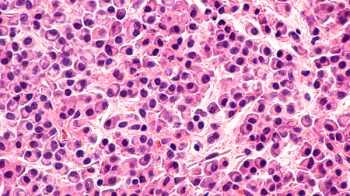
Ibrutinib in combination with venetoclax shows promise in patients with previously untreated chronic lymphocytic leukemia.

Febrile seizures occur in young, healthy children with normal development.
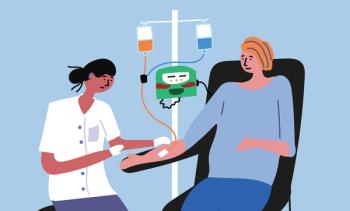
Further, among premenopausal women, those who received chemotherapy had a 40% relative improvement in IDFS compared to those administered endocrine therapy alone.

Affordability in drug pricing can be addressed by bringing the manufacturer and plan sponsor to negotiate costs and determine fair compensation for product and service providers in the supply chain.

Experts from the Infectious Diseases Society of America recommend enhanced protection measures against the Omicron COVID-19 variant.
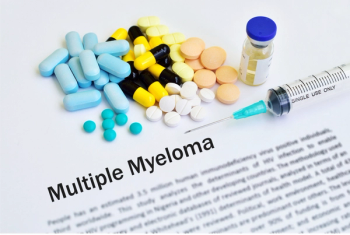
The combination of daratumumab with hyaluronidase (Darzalex Faspro), hyaluronidase-fihj, carfilzomib (Kyprolis), and dexamethasone is indicated for the treatment of adult patients with relapsed/refractory multiple myeloma who have received 1 to 3 prior lines of therapy.